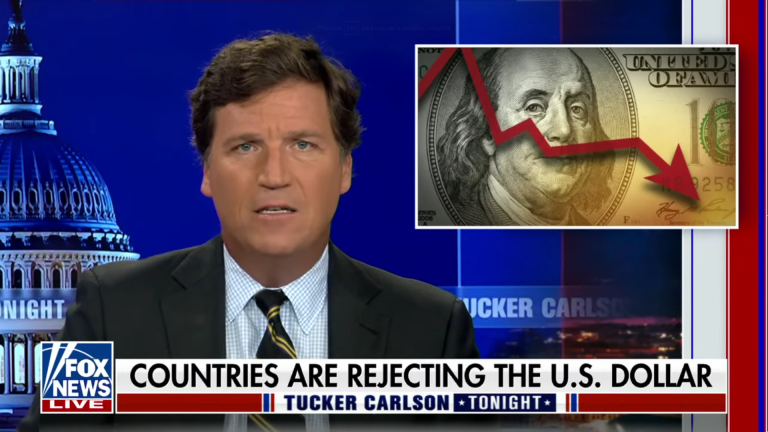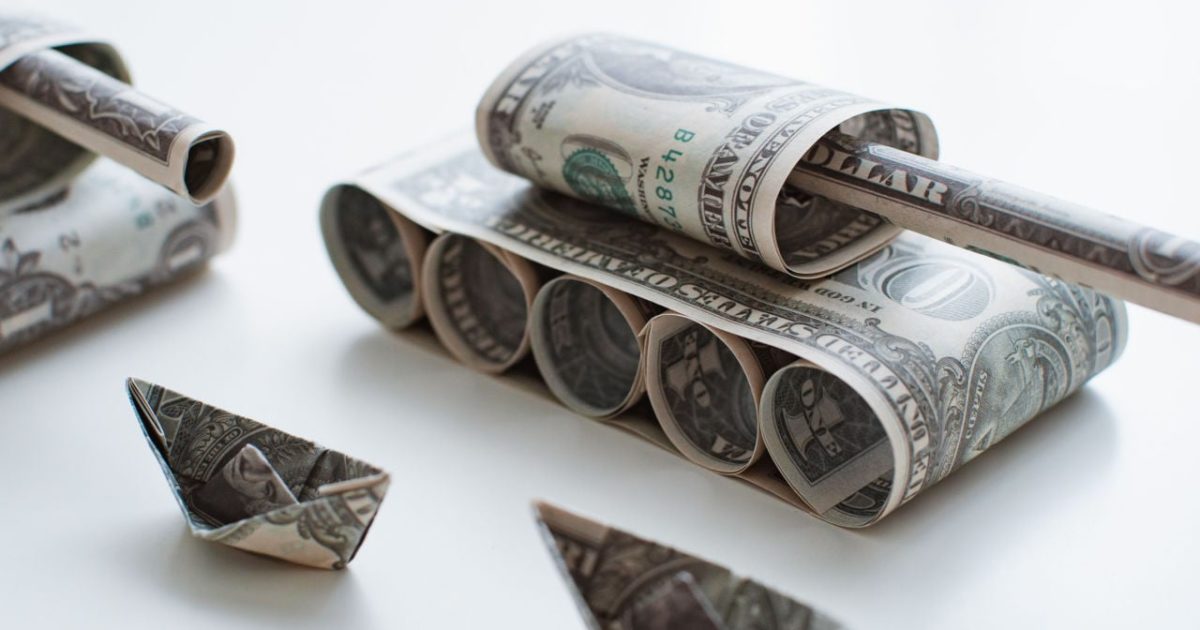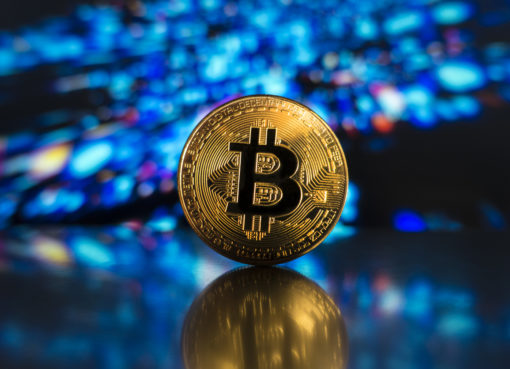Tucker Carlson, host of Fox News and the “Tucker Carlson Tonight” show, analyzed the situation surrounding de-dollarization movements that countries like China and Russia have promoted recently. Carlson stated that sanctions on Russia and the weaponization of the U.S. dollar are partly to blame for the developments.
Tucker Carlson Believes Sanctions Are to Blame for De-Dollarization Efforts Across the World
Tucker Carlson, host of Fox News and the “Tucker Carlson Tonight” show, touched on the recent moves countries have been making to distance themselves from using the U.S. dollar as a reserve and settlement currency. According to Carlson, the sanctions the U.S. government enacted against Russia — as part of the deterrence effort against the Russia-Ukraine conflict — are in part to blame for the recent de-dollarization efforts at a global scale.
Carlson explained that the sanctions did not result in the fall of the Russian economy due to its key traits, having its base in exports of products needed by other countries. He stated:
Unlike the U.S., Russia does not have a late-stage financial economy. Russian oligarchs do not get rich from credit default swaps. They get rich by selling actual things that people need in order to live: oil, gas, iron fertilizer, coal, wheat.
However, these sanctions that froze billions in funds owned by the Russian central bank and other Russian oligarchs supposedly alerted other countries about the danger of holding reserves in U.S. dollars.

Sanctions Bred Distrust
Carlson argued that as a result of these deterrence-led movements, other large economies started seeing the dollar as a liability that could be turned on them.
He explained:
Smart foreigners started to dump the U.S. dollar. Why? Because the U.S. dollar was no longer a reliable store of value. Suddenly it was a political weapon that could be wielded at will against anyone who held it.
Carlson believes there is an acceleration of these de-dollarization efforts as a consequence, citing the changes that China, Brazil, India, Pakistan, Saudi Arabia, and even France are making, to trade using the yuan and their own respective national currencies as a substitute for the U.S. dollar.
The final phase of this, Carson stated, will be the impoverishment of the U.S. people as a result of the return of all of these dollars to the country, that in turn will cause an economic collapse comparable to the one faced by the Weimar Republic after the First World War.
What do you think about Tucker Carlson’s thoughts on the recent de-dollarization movements? Tell us in the comments section below.
Image Credits: Shutterstock, Pixabay, Wiki Commons
Disclaimer: This article is for informational purposes only. It is not a direct offer or solicitation of an offer to buy or sell, or a recommendation or endorsement of any products, services, or companies. Cryptox.trade does not provide investment, tax, legal, or accounting advice. Neither the company nor the author is responsible, directly or indirectly, for any damage or loss caused or alleged to be caused by or in connection with the use of or reliance on any content, goods or services mentioned in this article.




